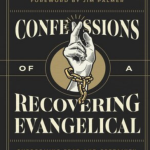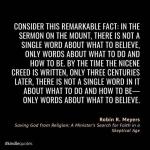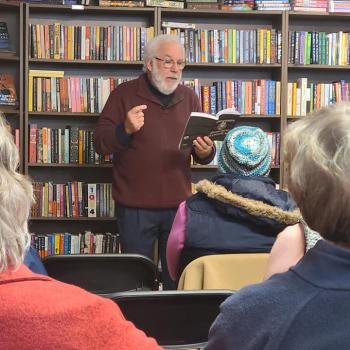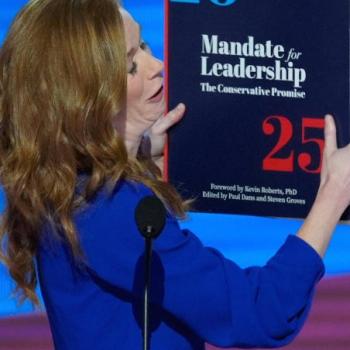
“To be antiracist is a radical choice in the face of history, requiring a radical reorientation of our consciousness.”
—-Ibram Kendi
We are in a scary moment in our history regarding the re-emergence of white supremacy as a driving force in society and politics. I don’t think it is hyperbolic to say that it is a crisis of our consciousness and our soul as a nation. It is a crisis of our humanity.
Today my goal is to talk very directly about what an individual person can do to combat white supremacy and push back on the hatred and bigotry. It seems like a daunting task, and yet, it calls us to respond, to take action, and to make a difference. It is the ultimate crisis of becoming fully and completely human.
We Were Given A Faulty Script
The action that I have chosen to take is fundamentally and substantially an inner journey toward overcoming the white supremacy that I have been conditioned to accept, was raised in, and either consciously or unconsciously benefited from. No one asked me if I wanted to be raised in a white supremacist stew, it was imposed on me without my consent. And now….I dissent! I willingly am seeking a radical reorientation of my consciousness toward white supremacy. And be assured….this is hard work!
Every person born and raised in the United States has been saturated in the virus of white supremacy. Not necessarily the KKK kind of hatred, but the type of society that equates “whiteness” with goodness and all things superior. Blackness is to be feared, controlled and segregated if you can get away with it. It is so much a part of our socialization that we aren’t even aware we are breathing it in constantly through media, education, and our institutions.
For me as a 60-something white guy, I’ve been swimming in this virus for many decades now, just like everyone. I didn’t even know I was infected. The first step to combatting racism is to recognize this fact…we have been given a script, against our will, to think about and center being “white” as superior to any other skin color. That is just the way it is, until….we decide to change it. Human agency and self-determination are the greatest gifts we have, if we will use them.
Changing this script is a spiritual journey. And spiritual journeys involve struggle, pain and hard work. It is an inner journey to rewrite our own scripts and reject the socializations that have seeped into our subconsciousness. The script we were given causes us to have unconscious bias. Anyone that denies this is self-deluded, even if they want to call themselves a “non-racist.” That is usually the first sign of someone that hasn’t come to terms with their own script.
There are and will be moments when we will need to speak out publicly and take bold action in the community, and I will do another article on civil discourse and direct action later. But today, I must start with the individual for it is within the individual’s own mind and heart that white supremacy must be confronted.
There Is No Other Way
Without taking this inner journey, I run the risk of devaluing my allyship to people of color, and making the same mistake that liberals and moderates have made in the past. Misplacing white priorities over those of people of color (POC), white-centeredness, and white-exceptionalism are always a danger that even a well-meaning person can fall trap to without doing the work of inner reflection. Without doing the spiritual work we can actually do more harm than good. Spiritual exercise is essential to becoming antiracist.
When I say antiracism is a spiritual practice, let me be precise. I’m not talking about any sort of religious institutional movement or work. The church, or at least the white churches, have more often than not stood in the way of true racial healing. Some have promoted white supremacy and still do whether they realize it or not.
White churches tend to define racism as the sinful act of an individual which can be forgiven by God. Fair enough, but that is where most Evangelical Christians leave it. White evangelical Christians are the least likely to see racism as an institutional, structural or societal problem. This is a major impediment to progress. So, a spiritual practice toward antiracism will actually be better served apart from organized religion, and Christianity in particular.
What Is Spiritual Practice?
When I talk about a spiritual exercise or practice I am referring more to the inner work of connecting to one’s true humanity and self and to whatever one believes God to be. You don’t even have to believe in God to do this spiritual work. There is secular spirituality and religious spirituality, but both will have the same result: seeing oneself as part of the whole of reality. Connecting our inner mind and heart to the vast humanity of people and realizing that we are all connected to each other in a real and vital way is the basis for becoming antiracist.
Dr. Martin Luther King, Jr., saw this connection as the basis for his actions during the Civil Rights movement. When King was in a Birmingham jail, he wrote a letter in which he observed,
“In a real sense all life is inter-related. All men are caught in an inescapable network of mutuality, tied in a single garment of destiny. Whatever affects one directly, affects all indirectly. I can never be what I ought to be until you are what you ought to be, and you can never be what you ought to be until I am what I ought to be… This is the inter-related structure of reality.”
This is a spiritual reality as well as a practical one. Until one reaches this understanding, we will never see the rationale for entering the conflict. So the act of becoming an antiracist is at its core a spiritual journey. This spiritual journey is what allows me to “weep with those that weep and rejoice with those that rejoice.”
I have benefited greatly from the writings of Dr. King, and I would add a few others to this list. Read about the spiritual journey of Gandhi, and explore the spirituality of Thomas Merton. These men provide a roadmap of sorts toward antiracism. I have read and reflected on their writings much, and have been profoundly impacted by them.
Entering the World of Another
What antiracism as a spiritual exercise helps me to do is enter the world of another person in an inner-connected way. I begin to enter the world of oppression for POC and begin to experience what it is like. I must use my imagination to feel what that might be like, but imagination is one of the most powerful spiritual tools that we have.
I can experience what another person feels by imagining myself in their place. Through mindfulness, prayer, or mediation, we can imagine what being enslaved was like. Or we can imagine what being a victim to lynching might be like. This is a spiritual practice. This mindfulness has one important result that is prerequisite for the work of antiracism: empathy. I’ll come back to this key point in a moment.
Using our imagination in this way takes practice, time, and work. For most people, even well-intentioned, they will be content to say, “I’m a non-racist.” And then go on with their compartmentalized life and way of seeing. They are disconnected through their own compartmentalized categories. It is the ultimate deception of white privilege. If all I do is say, “I’m not a racist” I can then ignore the reality of what POC experience every day. I can compartmentalize it and only bring it out when it suits me to think about it, and then put it away again if it makes me uncomfortable. That is my white privilege. It doesn’t motivate me to take action…and action, based on empathy, is what drives us to become antiracist.
Empathy vs. Guilt
Here is the key reason spiritual practice needs to be part of becoming antiracist. Guilt can never be used as a motivation for taking action to end racism. Those that push back that they aren’t guilty of enslaving people in their lifetime are actually correct. No one should feel guilty for the sins of the past committed by others. And, frankly, I don’t know a single POC that wants to make anyone feel guilty.
But what most people do is reject the guilt and then move on as if they have no responsibility as a human being to do anything. Or, if they do enter the work of combatting racism out of a sense of guilt, then their actions are taken more to assuage their guilt than it is to work toward the betterment of POC. It is another form of “white-centering” putting white feelings ahead of those that are oppressed. It is counter-productive, and more harmful than helpful to POC.
Spiritual practice then, is meant to move us in a different direction. Toward empathy. I can have empathy when I put myself in the place of another and imagine what their experience is like. Then, if I take public direct action to push back against racism, it isn’t because I am trying to assuage my guilt, but I am identifying with the experience of those that are oppressed. I become connected to them and to their experience and feel it, hopefully in a way that is close to their reality. I can take public direct action because I am one with them…united. And I can’t compartmentalize their experience any longer. I can’t put it away in the back of my mind when is suits me or is convenient. It compels me to act on behalf of another…by being connected to them in a real and vital way.
How I Have Worked Toward Connection and Empathy
There are three ways I’ll share from my own experience how I have tried to seek connection and unity with POC and their experiences. There isn’t a magic way to do this, and there are certainly strategies I haven’t tried yet. I have much to learn, but that is the point. This is a learning process. When you truly learn something, it will change you and you can’t then “unlearn” it. It becomes part of you forever.
As a historian, I find that learning about the history of Black Americans by visiting various sites where important events have taken place helps me to connect with that experience. I believe a place of historic significance has energy and power to draw you into the narrative in a way just reading about it can’t. That is why I’m an annoyance to travel with…I want to stop at every historic marker I see.
For example I was deeply moved at the Whitney Plantation in Louisiana where hundreds of enslaved people lived short lives, died of overwork, exhaustion or just plain murder. Walking those grounds it was easy to use my imagination to put myself in their place and try and understand and feel what enslavement was like. I began to feel a mournful sense of sadness. I allowed it to come over me as I walked among the enslave cabins, the sugar vats, and the “field of angels.” I was changed by that experience.
In my spiritual journey toward antiracism, there are many sites on my list to visit. The Greenwood district of Tulsa is high on that list along with the Legacy Museum in Montgomery, Alabama. Make your own list and go visit them, but as you do, learn about the experience of Black people by putting yourself in their shoes. You will be changed by it. These visits need to be a pilgrimage for your soul, to help radically change your consciousness.
Another method I’ve employed to work toward antiracism is by simply talking to and listening to the voices of Black people. I have had the opportunity to talk to people both informally and formally through forums and panel discussions. These are extremely important conversations and again, it helps me to be able to develop empathy for their experiences. Some of it is heartbreaking, and some of it is joyful and positive. Either way, you develop a connection to new friends, and learn about their experiences, and you become part of their story. And as I mentioned, once you learn something as powerful as this, you cannot unlearn it.
Recently I had the honor of interviewing a 93-year-old Black resident in our town, who was born in Jim Crow Alabama in 1930, but moved to Iowa over 40 years ago. His story was amazing. Fortunately, we videotaped his story for posterity, and his family. I was deeply moved by the agency and intentionality that this man showed in living his life with honor and dignity despite the slurs and indignities he was forced to endure. As a testament to his life, his son has recently been appointed to the pastorate of a local church in the area, the first Black pastor in our town so far as I know.
Finally, to truly become connected in our humanity to others, I have found that participating in celebrations and holidays important to Black Americans is a life-changing experience. This gets us more into the public realm of taking action which I will write about in the next article, but for now, think about how to get involved in a local Juneteenth event, or Kwanzaa holiday. What is not to celebrate in the ending of enslavement in the United States? What is not to respect in the principles of Kwanzaa? Umoja (unity), Kujichagulia (self-determination), Ujima (collective work and responsibility), Ujamaa (cooperative economics), Nia (purpose), Kuumba (creativity) and Imani (faith)! As white people, don’t misappropriate the holiday, but be a willing participant, and learner.
There is so much more to becoming antiracist through spiritual practice, but this has been some insight into my journey. Antiracism as a spiritual exercise and practice will prepare you and me for the direct actions we need to take in the public sphere. (Find more resources at the National Museum of African American History and Culture: Click Here.)














